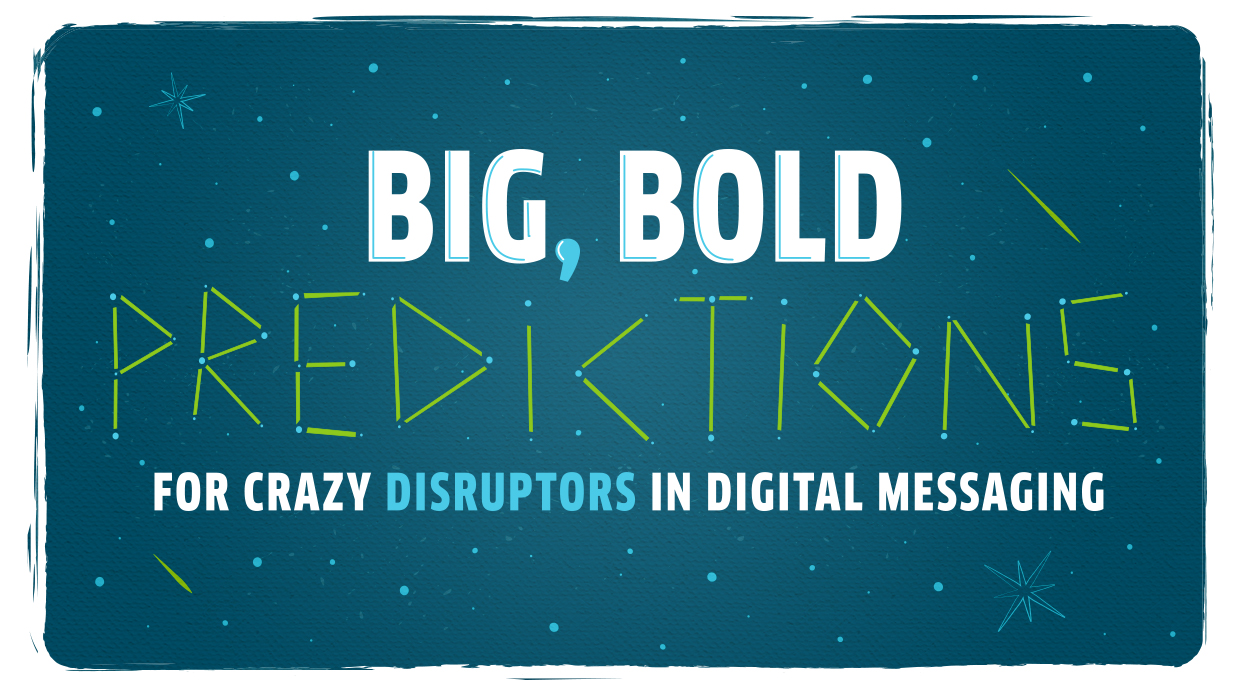Big, Bold Predictions for Crazy Disruptors in Digital Messaging

Where once was the carrier pigeon, now there’s email. Smoke signals have become Snapchats, telegraphs are now texts, so on and so forth. The way we communicate with each other is constantly evolving, especially when it comes to digital messaging. Technology advances, what used to be brand new quickly becomes obsolete and marketers have to scramble to keep up.
Optimize, Rinse, Repeat: Why Iterative SEO Is Key

There are many myths and misunderstandings associated with SEO. One of the first that comes to mind is the belief that SEO is a quick fix or a ‘one and done’ process. And a little part of me dies every time I hear that.
Think of SEO like teaching a child. In infancy, you have to tend to the child differently than you would as they mature. SEO has to be tended to similarly. SEO in its infancy was much less complex because search engines were less developed. Now that search engines have matured and learned to understand user behavior, SEO has become increasingly more complex, demanding continuous care as search engines inevitably grow more sophisticated.
Automation Without Autocracy: A Google Ads Guide for the Highly Skeptical

Ah, automation — everyone’s favorite buzzword. Along with machine learning, chatbots and General Data Protection Regulation, it’s one of the prevailing themes of marketing trends and predictions for 2020 and beyond.
If you’re like me, you’re in full-on Futurama-face mode, and automation feels like a bunch of slick-talking Google reps trying to take our jobs.
Changing Hearts and Minds with Wag-Worthy Moments

Anyone who follows Nebo knows that we’re pretty passionate about animal welfare. As such, one of our core causes has always been rescues.
The Importance of Perspective and Understanding Others

I once told my therapist that I live my life trying not to offend anyone. She was pretty taken aback and said that sounded like a very difficult and exhausting way to live life. And she’s right — it is.
Whenever I’m talking to someone, my brain is always three steps ahead, trying to make sure I won’t accidentally say something that could be considered a microaggression, or politically incorrect or just genuinely hurtful. I’m hyperaware of the conversations I have and whether or not I’m “allowed” to have them, or if there are words I’m not “allowed” to use. It’s exhausting, but it’s worth it.
We Wanted More Paid Media Podcasts, So We Made Our Own

Anyone in paid media knows that in this ever-changing industry, today’s best practice could become obsolete tomorrow.
In the world of paid, change happens at a pace that is near impossible to keep up with. What if a client asks a question I don’t know the answer to? What if Google or Facebook makes a huge announcement, and I don’t hear about it for several days? How am I supposed to optimize campaigns if I don’t know what tools are available?
It all boils down to one question: how can we do our best to stay on top of an industry that's changing faster than we can think?
Nebo’s culture is fueled by our team’s constant hunger to learn and grow through one another and never be satisfied with where we are. As someone who loves to learn, I’m constantly looking for new ways to challenge myself. One of the ways I’ve been cultivating this learning is through podcasts.